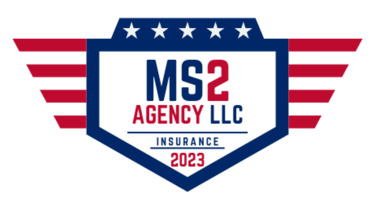NPN #20142358 MICHIGAN PRODUCER ID #1097370 AGENCY NPN #20969676 MICHIGAN AGENCY ID #0145888
Affiliate Disclaimer: Some links may be affiliate links, generating revenue for MS2 Agency LLC at no extra cost to you. See our Affiliate Disclosure Policy for details
Admitted vs. Non-Admitted Insurance Carriers: What Michigan Small Business Owners Need to Know
Confused about the difference between admitted and non-admitted insurance carriers? Learn the pros and cons of each and how to choose the right option for your Michigan small business. Understanding your carrier options can save your Michigan business time, money, and stress when claims happen.
ADMITTED VS NON-ADMITTED INSURANCENON-ADMITTED INSURANCE PROS AND CONSCOMMERCIAL INSURANCE CARRIERSSMALL BUSINESS RISK MANAGEMENTMICHIGAN BUSINESS INSURANCE
Michael Scott
4/1/20253 min read


Admitted vs. Non-Admitted Carriers: The Basics
When shopping for commercial insurance, many Michigan small business owners are surprised to learn there's more than one type of insurance carrier. Specifically, admitted and non-admitted carriers. The difference isn’t just semantics—it can impact your coverage, claims process, and financial protection.
Let’s break it down.
What Is an Admitted Insurance Carrier?
An admitted carrier is approved and licensed by the Michigan Department of Insurance and Financial Services (DIFS) to operate in the state. These companies must follow state regulations, rate approvals, and consumer protection laws.
Key features:
Must file rates and policy forms with the state
Covered by the state’s guaranty fund, which protects policyholders if the insurer becomes insolvent
Subject to state audits and financial oversight
Common examples: Nationwide, Travelers, and Auto-Owners are often admitted carriers in Michigan.
What Is a Non-Admitted Insurance Carrier?
A non-admitted carrier, also called a surplus lines carrier, isn’t licensed by the state in the same way. They’re allowed to write policies in Michigan but only under special rules. These carriers provide coverage for hard-to-insure risks or niche industries where admitted carriers won’t go.
Key features:
No guaranty fund protection if the company fails
More flexibility in pricing and coverage terms
Must go through a licensed surplus lines broker
Common examples: Lloyd’s of London and Scottsdale Insurance often operate as non-admitted carriers.
Pros & Cons for Michigan Small Business Owners
Let’s weigh the pros and cons of each option from a business owner’s perspective.
✅ Pros of Admitted Carriers
Regulated and stable: You know they’ve been vetted by the state.
Guaranty fund protection: If they go belly up, your claims are still covered.
Easier claims recourse: You can appeal to state regulators if there’s a dispute.
❌ Cons of Admitted Carriers
Limited risk appetite: They may decline coverage for high-risk or niche businesses.
Less flexible policies: Coverages and rates are standardized and may not suit unique needs.
✅ Pros of Non-Admitted Carriers
Custom coverage: Perfect for businesses with special risks or unique exposures.
Faster underwriting: Less red tape and quicker turnarounds.
Access to specialized markets: Great for contractors, event planners, and emerging industries.
❌ Cons of Non-Admitted Carriers
No state-backed financial safety net: If they fail, you may lose coverage and money.
Limited consumer protections: Less oversight means fewer options if something goes wrong.
Harder to shop independently: You’ll need to work with a broker familiar with the surplus lines market.
So… Which One’s Right for You?
It depends on your business type, risk profile, and coverage needs.
Admitted carriers are a solid fit for traditional businesses with straightforward risks: retail shops, accountants, local restaurants, etc.
Non-admitted carriers are ideal for higher-risk businesses or those needing customized solutions, like contractors with scaffolding work, cannabis retailers, or mobile food vendors.
At MS2 Agency, we work with both admitted and non-admitted carriers. Our goal is simple: get Michigan business owners the right coverage, at the right price, with zero surprises at claim time.
Final Thoughts
Understanding the difference between admitted and non-admitted insurance carriers isn’t just industry jargon—it’s about protecting your business when things go sideways. Don’t just look at the price tag. Look at the stability, flexibility, and claims support you’re really getting.
Need help deciding which carrier type is best for your small business? Let’s talk. We’ll walk you through it—no pressure, no fluff.
📚 Sources:
Michigan Department of Insurance and Financial Services
National Association of Insurance Commissioners (NAIC)
IRMI (International Risk Management Institute)
🚀 Get Your Customized Insurance Quote Today!📝
Fast ⚡ Easy ✅ Tailored to Your Business Needs 💼


💼 Business Loans & Credit Lines 💳
🚀 Fast, Flexible, & Easy ✅ Competitive Rates 💰

⭐ See Why We're 5-Star Rated on Google!
Trusted by Businesses Like Yours ✅
💼 Ready to Save on Business Insurance? 🚀 Get Your Instant Quote Now—Fast, Easy, and No Hassle! Protect Your Business, Control Your Costs! 🔍
💳 Seamless & Secure Card Processing with Deposyt! 🚀 Low Fees, Fast Transactions, Maximum Security! 🔒
🚗 Out of Factory Warranty? No Worries! 🛡️ Arkay Auto Warranty Covers Repairs, Saves You Money, & Keeps You on the Road Longer! 🔧💰 Get Protected!
MS2 Agency LLC
Built For Contractors & Michigan Families
Contact Us
Join our mailing list for Insurance education, offers, and savings tips
© 2025. MS2 Agency LLC All rights reserved
3846 Arlington Ave., Fort Gratiot, MI 48059




